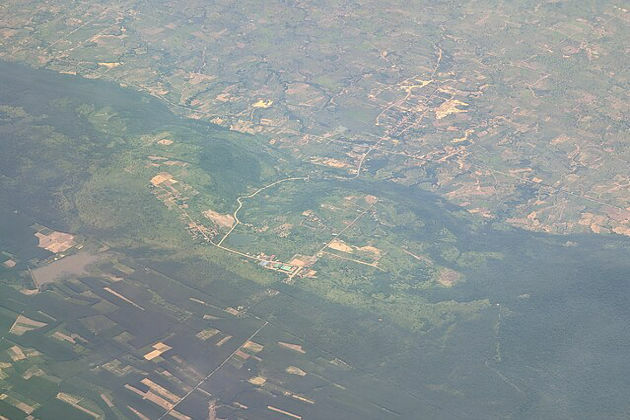Move FM Global News

Violence at Thai-Cambodian border forces thousands to flee
Jul 28, 2025SURIN, Thailand: Tensions between Thailand and Cambodia escalated sharply this week as armed clashes along their shared border left at least 14 people dead—most of them civilians—and forced the evacuation of thousands. The violence marks one of the most serious confrontations in years between the two Southeast Asian nations, both members of ASEAN.
On July 24, fighting broke out in at least six locations along the border following a land mine explosion the previous day that injured five Thai soldiers. In response, Thailand expelled Cambodia’s ambassador and withdrew its own from Phnom Penh. Thai forces, according to Defense Ministry spokesperson Surasant Kongsiri, responded with small arms fire, artillery, rockets, and airstrikes.
The following morning, July 25, Cambodian authorities reported renewed clashes near the ancient Ta Muen Thom temple in Oddar Meanchey province. General Khov Ly, the province’s top official, said four civilians were wounded in the fighting and more than 4,000 people had been displaced to evacuation centers. Many fled their homes with families and belongings piled onto makeshift tractors, seeking safety deeper within Cambodia.
In Thailand, Acting Prime Minister Phumtham Wechayachai said the violence had spread across four provinces. The Interior Ministry ordered evacuations of civilians living within 30 miles of the border. Thailand’s Public Health Ministry confirmed 14 fatalities, including a Thai soldier and 13 civilians, among them children. An additional 14 soldiers and 32 civilians were injured. Public Health Minister Somsak Thepsuthin condemned the attacks on civilians and a hospital, calling them violations of international humanitarian law and the Geneva Conventions.
Despite repeated calls for restraint, both nations have traded blame. In Bangkok, Foreign Ministry spokesperson Nikorndej Balankura warned that Thailand was “prepared to intensify our self-defense measures” if Cambodia continued what he termed “armed aggression” and encroachments on Thai sovereignty.
In Phnom Penh, Cambodian Defense Ministry spokesperson Lt. Gen. Maly Socheata said the country had no choice but to defend itself against “Thai threats,” asserting that Cambodian strikes targeted only military positions. Prime Minister Hun Manet appealed to the United Nations Security Council for an emergency session, accusing Thailand of initiating aggression.
The conflict has triggered a diplomatic and humanitarian crisis. Thailand has closed all land border crossings with Cambodia and urged its citizens to leave the country. Seven Thai airlines have reportedly agreed to assist with repatriation flights for those wishing to return.
This outbreak of violence is the most intense since a similar border dispute in 2011 that resulted in 20 deaths. Though Thailand and Cambodia have a history of friction along their 800-kilometer (500-mile) frontier—especially near disputed temple sites—most past confrontations were brief and rarely involved heavy weapons or airstrikes.
However, bilateral relations have frayed significantly in recent months. A deadly incident in May that left a Cambodian soldier dead appears to have deepened the mistrust, setting the stage for the July 24 clashes.
From an evacuation site near Samrong town in northern Cambodia, 45-year-old Tep Savouen, a mother of four, recounted the terror of waking to gunfire around 8 a.m. “We ran with what we could carry,” she said. “The children were crying. We just wanted to survive.”
United Nations Secretary-General António Guterres, through spokesperson Farhan Haq, urged both sides to show “maximum restraint” and resolve disputes through dialogue. But with both governments hardening their rhetoric and military deployments ongoing, the path back to peace remains uncertain.


